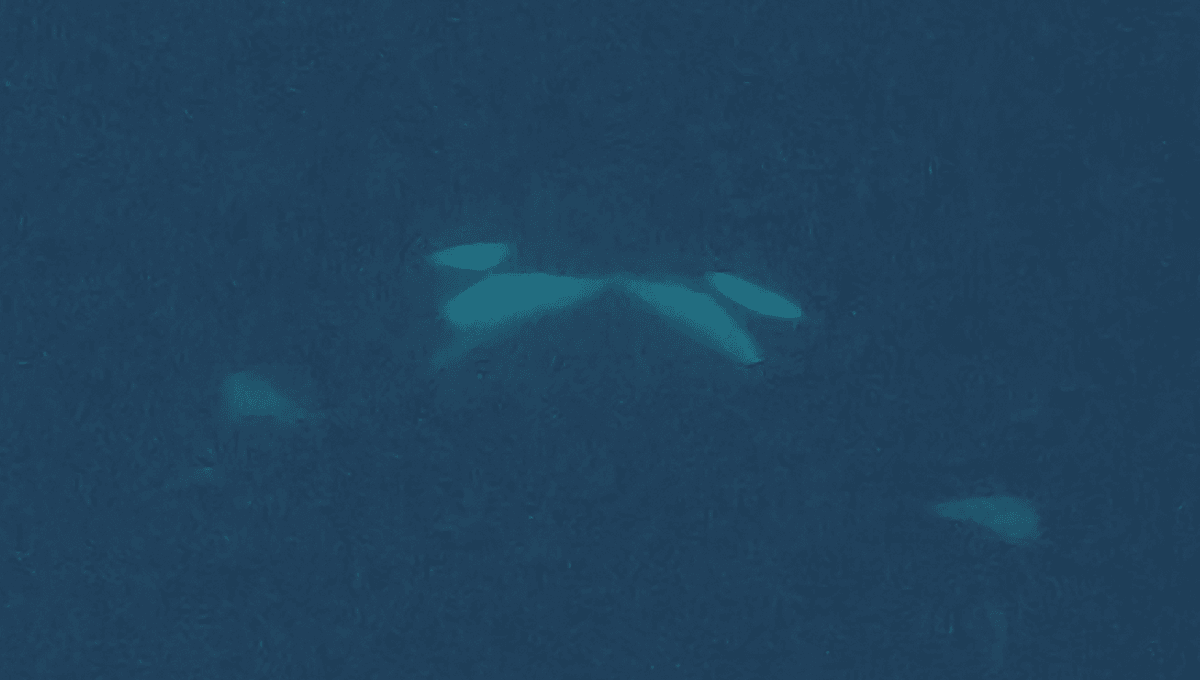
Despite having a reputation for strategically hunting marine mammals and occasionally sinking yachts in the Mediterranean, it has now been revealed that orcas have a more romantic side. After drones recently revealed they enjoy giving each other kelp massages, new research has since shown that they like to kiss, with tongues.
Until now, the behavior, which is scientifically known as “tongue-nibbling,” has only been seen in orcas under human care. This caveat made researchers wonder if this behavior was something seen in wild orcas or if it was a product of the captive environment. However, in the waters of the Kvænangen fjords in Norway, two wild orcas (Orcinus orca) have been recorded giving each other a cheeky smooch.
The interaction was recorded by a group of citizen scientists during a snorkeling trip and shows what the new paper describes as “repeated episodes of gentle, face-to-face oral contact”. The snorkelers were floating horizontally in the water to minimize the risk of disturbing the orcas. The behavior occurred between two adult orcas and was filmed on a GoPro. The interaction lasted a total of 1 minute and 49 seconds, and comprised three kissing episodes of 10, 26, and 18 seconds each. After the final episode, the orcas then parted and swam away from each other.
This behavior is similar to behavior seen in Loro Parque, a zoo on the island of Tenerife, in 2013. In that case of observed behavior, “one individual protruded its tongue while the other made gentle nibbling movements,” explain the authors. Discussions with the keepers at the park suggest that tongue nibbling behavior had been seen in four individual orcas at the park. The behavior has also been seen in beluga whales, where it is believed to strengthen social bonds and is often seen in juveniles. It could also be a behavior that helps develop social and even motor skills within the cetaceans.
“Tongue-nibbling is exceptionally rare,” Javier Almunia, study author, told Live Science. “Orca caretakers at several facilities are aware of the behaviour, but its prevalence is extremely low — it may appear and then not be observed again for several years.”
Given that the behavior has been seen both in zoological contexts and in the wild makes the researchers more confident that this kissing is part of the natural behavior repertoire of orcas. The behavior was first mentioned in 1978 and has only just been recorded in comparable footage from the wild, highlighting how difficult it is to study underwater behaviors in these mammals and how investing in underwater monitoring technologies could be beneficial in learning even more about orca behavior.
The paper is published in Oceans.
Source Link: Orcas Filmed Kissing (With Tongues) In The Wild For The First Time